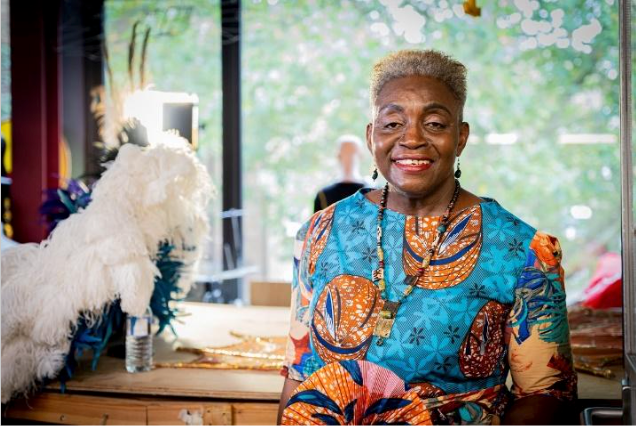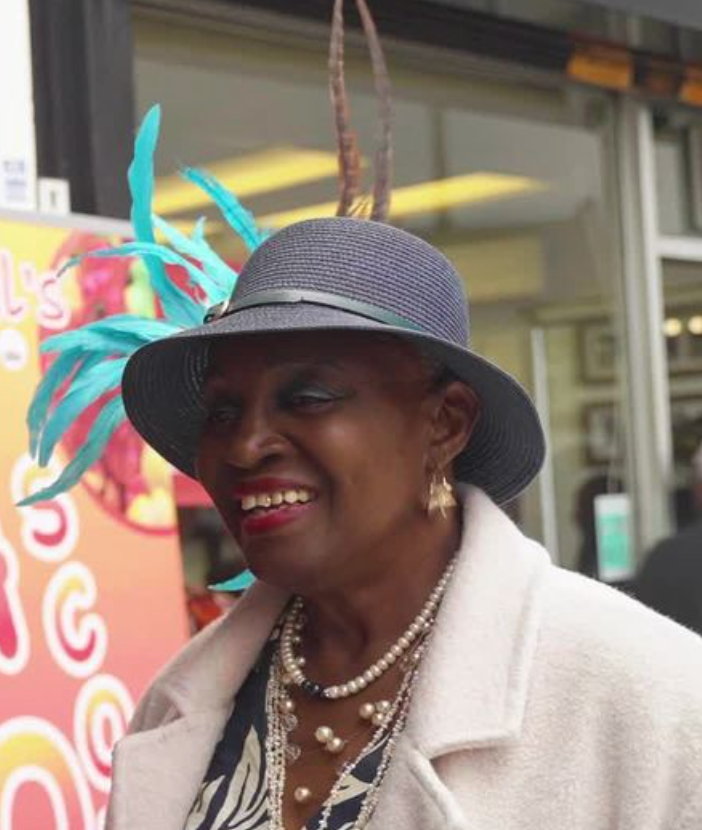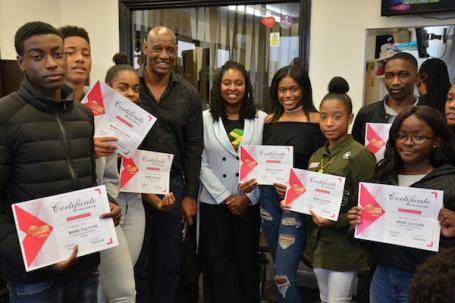Celebrating National Windrush Day – 22 June
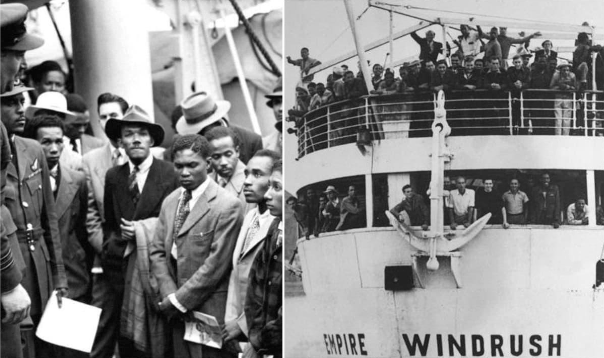
Let us take some time to appreciate the passion, commitment and diligence of the Windrush Generation: those British nationals living in the Caribbean, who left their family and livelihoods to help rebuild Britain after the Second World War.
Why celebrate National Windrush Day
By the end of the Second World War (1939-1945), bombed out buildings coupled with lost lives, left Britain desperate for manpower to restore its industries, homes, transport network and services. Many Caribbean countries like Jamaica, the Bahamas, Trinidad and Guyana were then part of the British Empire and the Commonwealth, and its citizens were invited to Britain to help rebuild the “motherland.” They felt honoured and excited to do so.
On 22 June 1948 ‘HMT Empire Windrush’ arrived in Britain from Australia, via the Caribbean, with 492 loyal adults and families, keen to rebuild Britain. Similar journeys continued up until 1973, bringing some 500,000 British Caribbean nationals, by both sea and air. They are known as the
Windrush Generation and 22 June was marked as
Windrush Day. This year, 2023, marks the 75th anniversary of National Windrush Day.
Windrush Day is intended to raise awareness in communities across the country, to recognise and honour the incredible and invaluable contributions that were made by the Windrush Generation and their descendants to rebuild Britain, braving the cold weather, menial jobs, racism, discrimination, and substandard housing. Windrush Day will keep the legacy of the Windrush Generation alive, so that future generations acknowledge and respect their contribution to our diverse British society.
Why did the Windrush scandal happen
During the late 1960s, improvements were seen in the labour market and the economy was strengthening. The British Government decided that they needed to control the alleged high level of immigration into the UK, especially preventing citizens of the commonwealth from living in Britain permanently. As many of the younger Windrush Generation arrived on their parents’ passports, and the Home Office destroyed thousands of landing cards and other records, many had little documentation to prove their right to remain in the UK.
The Windrush scandal is a national disgrace that showed the ignorance and thoughtlessness of the Home Office, and complete disregard for the Windrush Generation. It has also been reported that this scandal was totally foreseeable and avoidable. This generation was cruelly classed as “illegal immigrants” and “undocumented migrants,” as such they lost their access to housing, healthcare, bank accounts and driving licenses. Many were callously placed in immigration detention centres, prevented from travelling abroad and threatened with forcible removal, while others were deported to countries they hadn’t seen since childhood. This unjust treatment, which continues today, is known as the
Windrush Scandal.
A Windrush Compensation Scheme attempts to pacify the atrocious ill treatment of these British Caribbean nationals. This scheme is equally scandalous: it is complex to navigate, there is a lack of free legal advice, claims take months to process, and compensation offers don’t come close to what people lost. Worse yet, the policies that led to this scandal are still in place. The Home Office has been heavily criticised for its ineffectiveness and slowness and there are calls to remove the management of this scheme from the remit of the Home Office.
The story of Allyson Williams MBE – a member of the Windrush Generation
Allyson came to Britain by air on 16 May 1969 from Trinidad & Tobago with dreams of becoming a nurse, like her mother. At just 21 years old she travelled solo, leaving behind her doting parents, five younger siblings, and great prospects in the civil service (where she had received two promotions in three years). When asked why she responded to Britain’s plea for help, Allyson said,
“I felt very important and honoured when presented with the opportunity to rebuild the mother land.”
The Ministry of Health in Trinidad arranged everything: her four-year course studying nursing and midwifery at the Whittington Hospital, North London; accommodation in the Nurses’ home; a student salary; and free meals.
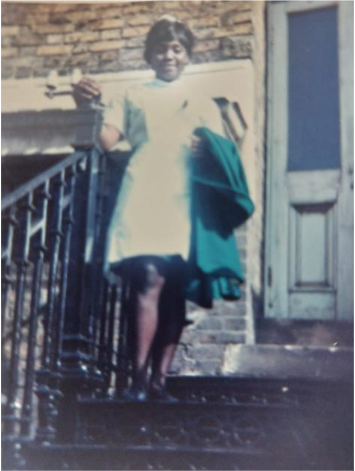
Allyson planned to return to Trinidad after helping with the post-war efforts. She said,
“My first impression of London was such a culture shock. Despite the war, I expected so much more. London was ugly and grey with rubbish and derelict buildings everywhere. The racism I experienced was savage.”
In 1973 her family moved to the US as her father, who was a naval fireman, was offered permanent residence there. Her mum wanted her to join them, but three weeks before doing so, Allyson met the man she was to marry. It was always her dream to marry a Trinidadian, so her children could appreciate their Caribbean culture and understand their origins.
Patients would slap Allyson and wouldn’t want her touching them, saying she was dirty and they didn’t want her blackness to rub off on them. She would often cry herself to sleep, but her mum gave her the strength she needed to carry on. She would say, “Get a grip; racism is their problem not yours; you have a plan and a purpose, so find a way to deal with it.”
Allyson eventually found her voice one day when she stood up to comments about her colour, responding, “I know that I am black. I have been black for twenty-one years, so tell me something I don’t know”. Patients and staff were dumbfounded, but from then on, she gained the strength to hold her head high and carry out her job with pride. The racism persisted, but it never affected her again.
As a midwife, Allyson felt privileged and humbled knowing she was bringing life into this world.
Allyson was one of the lucky ones. On completing her nursing and midwifery training in September 1974, she was granted indefinite leave to remain. She freely travelled on her Trinidad passport and in 2004 applied for a British passport. She assumed that all Windrush generation members and their families had a similar experience and was horrified to hear about the Windrush scandal.
In 2002, Allyson was awarded an MBE for her services to Midwifery. Since 1980, she has been heavily involved in the Notting Hill carnival celebrations and is no stranger to television and radio interviews. In fact, you can view Allyson’s story at the
Migration
Museum exhibition in Lewisham until June 2024.
Despite the persistent racism Allyson faced over 38 years as a nurse and midwife, she described her journey as a fascinating and memorable one where she developed courage and high self-esteem. She is proud of her heritage and legacy. Her two children embraced that spirit and have a strong sense of identity and understanding of where they came from.
Her message to others is to be proud of your Blackness, keep learning and live your best life. She quotes Maya Angelou,
“I have great respect for the past. If you don’t know where you’ve come from, you don’t know where you’re going.”
